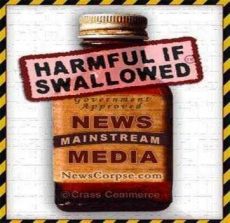 “It was a mind-blowing moment for some Justice Department veterans. Since when do prosecutors hand out certificates of exoneration to the people they investigate? (Answer: They don’t.) Since when has “not exonerated” been an accepted legal outcome — as in “How does the jury find the defendant? We find him not exonerated.” (Answer: Never.)”
“It was a mind-blowing moment for some Justice Department veterans. Since when do prosecutors hand out certificates of exoneration to the people they investigate? (Answer: They don’t.) Since when has “not exonerated” been an accepted legal outcome — as in “How does the jury find the defendant? We find him not exonerated.” (Answer: Never.)”
(Byron York – Washington Examiner) One of the more unfortunate effects of the Trump-Russia investigation — and there have been many — is the weakening of traditional standards of argument and proof in the public debate over allegations that the Trump campaign conspired with Russia to fix the 2016 election. (Just for the record: It didn’t.
In particular, angry disputes about the president have done terrible harm to the principle that an investigator, be it a journalist or a prosecutor, should meet at least some standard of proof before leveling an accusation.
Two examples. First is the so-called Steele dossier, the collection of wild allegations against Trump compiled by former British spy Christopher Steele on behalf of the Hillary Clinton campaign and the Democratic National Committee.
Steele’s unfounded accusations — that there was a years-long “well-developed conspiracy” between Trump and Russia, that Trump accepted “a regular flow of intelligence from the Kremlin,” and that Russian spies taped Trump watching prostitutes perform a kinky sex act in a Moscow hotel room in 2013 — circulated throughout law enforcement and political circles starting in the summer of 2016. That just happened to be the time the Clinton campaign and some in the media began accusing Trump of “colluding” with Russia to gain an advantage in the election.